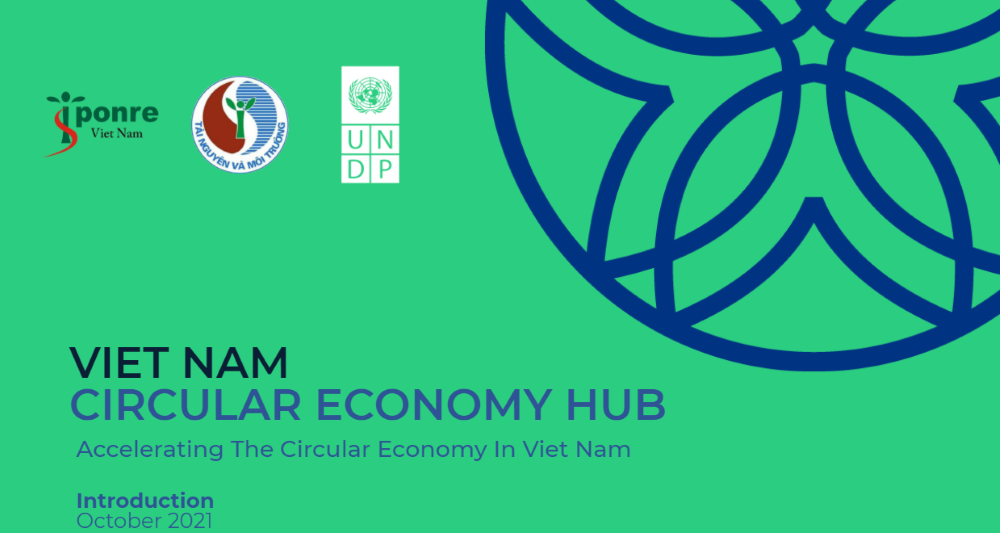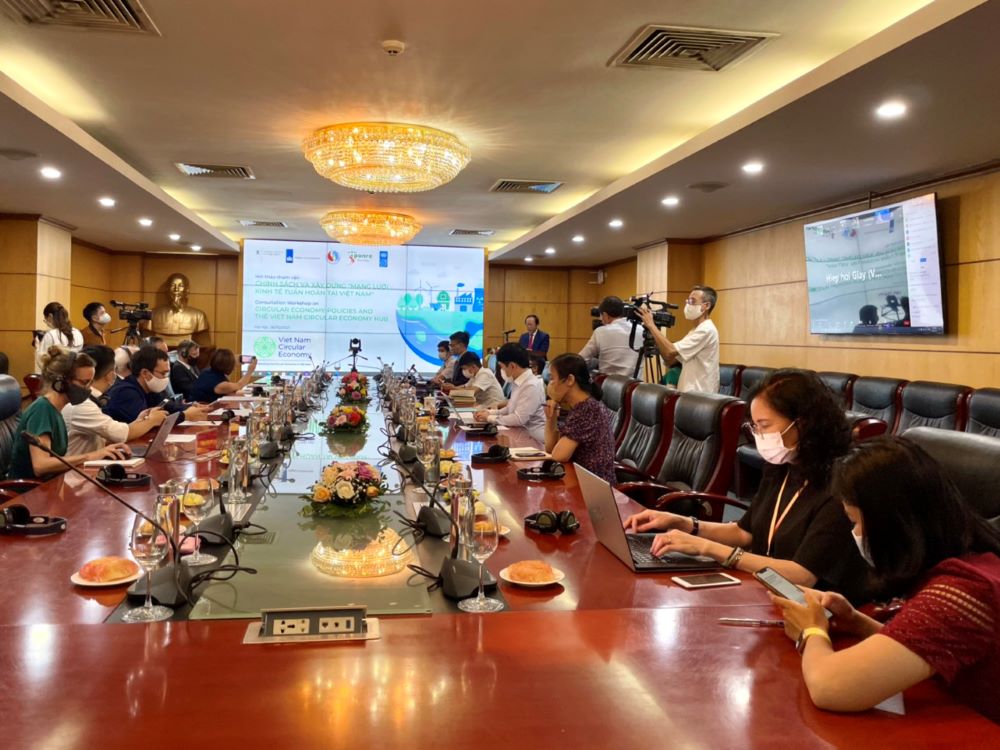Vietnam's circular economy: right path and promising
Vietnam’s specified action plan and international support would push up its transition towards a low-carbon journey.
Both domestic and foreign experts believe that Vietnam’s circular economy would draw the participation of different stakeholders and gain popularity thanks to the country’s clear planning and concrete implementation.
| Vietnam is on the path of a circular economy with support from international partners. |
Multilateral support
At the online and in-person workshop gathered more than 200 participants from Vietnam’s agencies, international organizations, businesses, research institutions, CSO, and NGOs, especially representatives of the Norwegian Embassy in Hanoi and the Dutch Embassy in Hanoi, key stakeholders discussed the implementation of the "Vietnam Circular Economy Hub" (or CE Hub) via www.vietnamcirculareconomy.vn to be available in Vietnamese and English.
This CE Hub, which received financial support from the Norwegian Embassy and technical support from the Dutch Embassy, aims to raise awareness and build the capacity of all stakeholders, including public authorities, businesses, civil society, and academia, in adopting the CE principles.
It helps create synergies and integrate financial and technical resources to support the transition towards a low-carbon and circular Vietnam. It organizes training, workshops, and events to enhance dialogue, generate know-how, and mobilize collective action towards the CE transition.
Speaking at the consultation, Terence D. Jones, UNDP Vietnam Resident Representative a.i., highlighted the transition towards a Circular Economy should be inclusive, fair, and contribute to the socio-economic development strategy of the country, by investing in education programs geared towards communities, citizens, and the workforce.
"This will help SMEs meet quality standards to gain access to domestic and international markets, and mobilizing finance to boost innovation," Jone said.
“This Vietnam Circular Economy Hub will contribute to the improvement of institutions and policies on the circular economy, especially promoting the transition to a circular economy substantively and effectively,” said MoNRE Deputy Minister Vo Tuan Nhan.
He also called on the Vietnamese business community to actively participate, exchange, and implement circular economy models, helping Vietnam achieve its sustainable development goals in 2030.
“Circular economy is an important part of the UNDP Project Scaling up a Socialized Model of Domestic Waste and Plastic Management (DWP5C) that Norway is happy to support,” said Grete Løchen, Norwegian Ambassador to Vietnam and Laos.
“I believe that the ‘Vietnam Circular Economy Hub’ will be a great platform that brings together various stakeholders, including the private sector, to work and turn plastics into business and economic opportunities in Vietnam. This is important for both the ocean environment and a sustainable economy. And this is also a Norwegian experience,” she noted.
Christoph Prommersbeger, Charge d’Adfairs, Dutch Embassy in Vietnam, said: “We are delighted to be a partner of the Vietnam Circular Economy Hub launched today. The Netherlands, its experts, companies, and their technological solutions stand ready to assist Vietnam to support a vision of a future-proof, sustainable economy for current and future generations."
The fight against pollution is a race to the top. Ruling by example will be to the benefit of our profit, people, and the planet.”
| Participants at the workshop in Hanoi on Oct 6. Photo: UNDP |
In the Revised Law on Environmental Protection adopted by the National Assembly in 2020, circular economy (CE) plays an important role, defined as an economic model in which production and consumption are aimed to reduce the exploitation of natural resources, limit waste discharge, and extend product lifecycle.
Sticking to the model, the Ministry of Natural Resources and Environment (MoNRE) has worked on the issue with authorized agencies and partners to minimize environmental impacts for Vietnam’s sustainable development, according to Mai The Toan, deputy head of the ministry’s Institute of Strategy and Policy on Natural Resources and Environment (ISPONRE).
ISPONRE hopes the path ahead would help improve people’s awareness of CE and make changes thanks to changing mindset of people involved, Toan said at the consultation workshop, which was jointly held by MoNRE and the United Nations Development Programme (UNDP).
"To prepare for a National Action Plan that is expected to release in December 2023, we have paid much importance to the broader engagement of different participants who are common people, businesses, and the government," Toan said.














